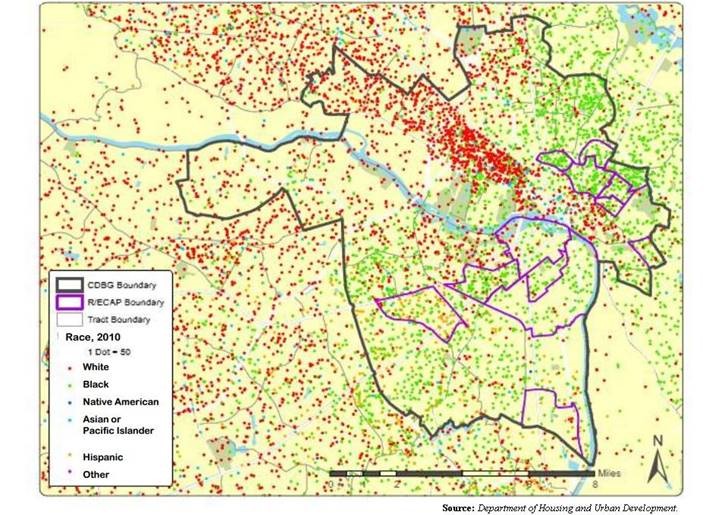In 2016, Hampden Township, Pa. opted out of receiving part of the $1.4 million of community development block grants that the the Department of Housing and Urban Development (HUD) had allocated to Cumberland County.
The issue? The 2015 Affirmatively Furthering Fair Housing regulation put in place by the Obama administration that allows HUD to condition $3 billion of those grants on making changes to local zoning ordinances to comply federal income and race guidelines. More than 1,200 cities and counties nationwide receive those grants.
Specifically, it did so by directing municipalities “to examine relevant factors, such as zoning and other land-use practices that are likely contributors to fair housing concerns, and take appropriate actions in response [emphasis added]” as a condition for receipt of the block grants.
Hampden Township Board of Commissioners President Al Bienstock said, “The provisions were so onerous in ceding the zoning authority to some unelected bureaucrats in the federal government that, reluctantly, we opted out.”
But, because of a change to federal law by Congress to prohibit the use of funds to rezone local cities and counties, Hampden Township has reversed course and will take the funds now.
Division F, Title II of the Consolidated Appropriations Act of 2019, Section 232 states: “None of the funds made available by this Act may be used by the Department of Housing and Urban Development to direct a grantee to undertake specific changes to existing zoning laws as part of carrying out the final rule entitled ‘Affirmatively Furthering Fair Housing’ … or the notice entitled ‘Affirmatively Furthering Fair Housing Assessment Tool’…”
The same provision sponsored by Sen. Susan Collins (R-Maine) passed the Senate easily 87 to 9 in 2016.
Meaning, now cities and counties can decide for themselves how to use the funds.
With the change, that was enough for Bienstock and the rest of the board to approve accepting the HUD funds once again. “I want to state absolutely, without qualification, that Hampden Township never discriminates. But our concern was that you would have unelected bureaucrats with the ability make assertions that could have impeded the township’s ability to maintain its zoning laws.”
But it might not last. The 2015 regulation is now being rewritten by the Trump administration. Secretary Ben Carson told the Wall Street Journal in an Aug. 13, 2018 interview that he was still looking at using the grants make changes to zoning: “I would incentivize people who really would like to get a nice juicy government grant [to look at their zoning codes].”
In the case of the Carson plan, the idea does not appear to be to achieve utopian racial or income integration, but to rezone to allow for multifamily properties that were once single family properties, with the goal of increasing housing stock to reduce prices.
While making housing more affordable is certainly a laudable goal in areas where there may be shortages, Americans for Limited Government still takes the view that it ought to be left up to localities to make those determinations, not unelected bureaucrats in Washington, D.C.
For now, the omnibus spending bill bars HUD from getting involved with zoning again, but with another omnibus bill about to be adopted, it remains to be seen if Congress will carry it over again. We also still have yet to see the Trump administration’s rewrite of the regulation is going to be. Will the federal government still be messing around with local zoning? Stay tuned.
Robert Romano is the Vice President of Public Policy at Americans for Limited Government.







